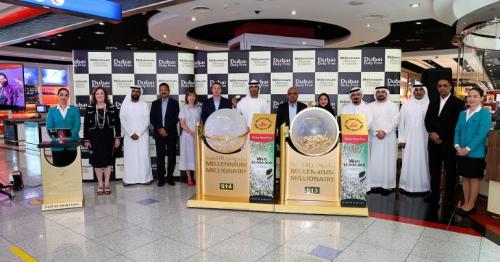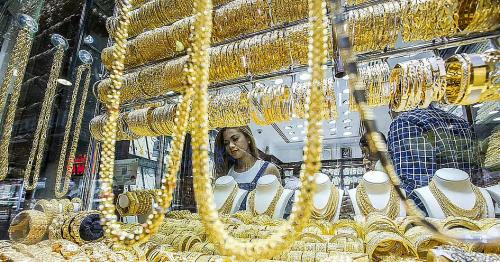Saba Sanabel: Sharjah's Wheat Revolution

In the heart of Sharjah's Mleiha, a once vast desert has been transformed into a thriving wheat farm named 'Saba Sanabel,' translating to seven spikes. Defying initial skepticism about cultivating wheat in the desert, the farm covers 1,900 hectares surrounded by rugged mountains. With each visit, the wheat farm exhibits remarkable progress, as saplings now stand knee-high, forming 37 lines of crops.
The farm, now entering its second year, has significantly expanded since its initial bloom over 400 hectares, producing over 200 tonnes of high-quality wheat in the previous year. Anticipation surrounds the upcoming harvest, expected to surpass the previous year's yield. Sowing the farm involved utilizing 300 tonnes of premium seeds from diverse locations and applying 24,000 tons of organic fertilizers to promote optimal growth.
An essential component of the farm's success is an irrigation pond with a capacity of 48,000 cubic meters, drawing and pumping water for efficient irrigation. This strategic water management ensures the wheat crops receive the necessary hydration for robust growth.
Dubbed 'Saba Sanabel,' the wheat cultivated at the farm boasts the highest protein content in the UAE market, reaching an impressive 18 percent. The initial batch of wheat became available during the last 10 days of Ramadan, offered in two sizes – 2kg and 5kg. This homegrown wheat not only signifies a remarkable achievement in desert agriculture but also contributes to local food security.
The farm's ambitious goal is to produce 15,200 tonnes of wheat, equivalent to Sharjah's annual consumption. This substantial production aims to replace the need for imported wheat, fostering self-sufficiency and reducing reliance on external sources.
As the wheat farm in Mleiha continues to flourish, it represents a groundbreaking venture that showcases the potential for agriculture in arid regions. The success of 'Saba Sanabel' not only transforms a once barren landscape into a thriving agricultural hub but also serves as a testament to innovation and determination in enhancing food sustainability in the UAE.
In summary, the wheat farm in Sharjah's Mleiha, known as 'Saba Sanabel,' defies expectations by turning a desert into a flourishing agricultural venture. With significant expansion, strategic water management, and the utilization of premium seeds, the farm aims to produce 15,200 tonnes of wheat, contributing to local food security and reducing dependence on imports. This success story underscores the potential for innovative agriculture in arid regions.
For More Related Updates Please Visit Our Official Website
By- Sahiba Suri






Comments